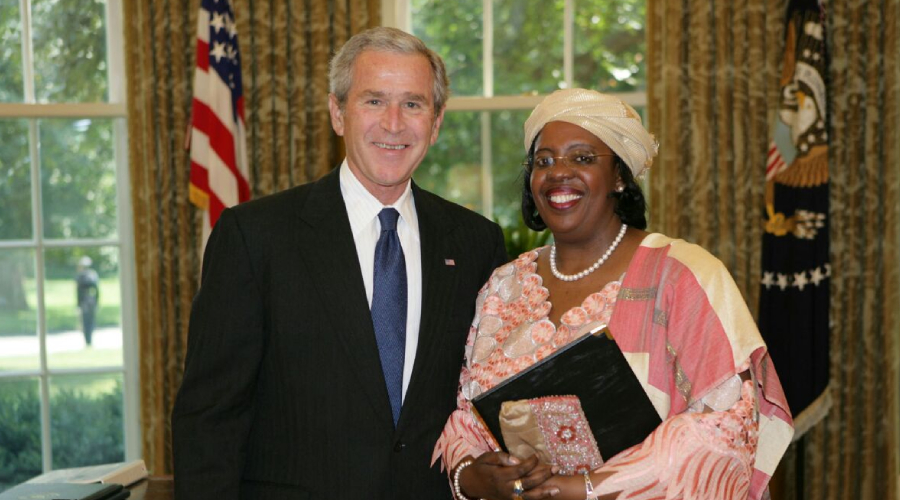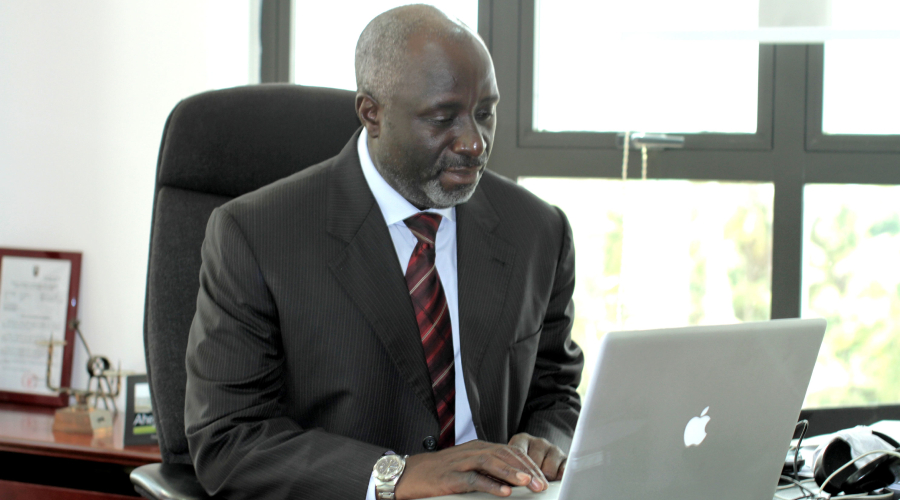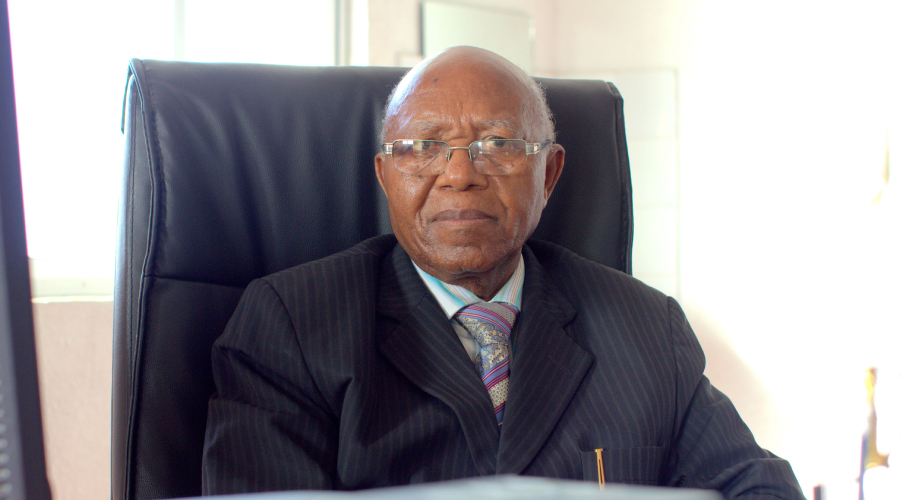Amina Salum Ali: Diplomat who redefined Tanzania’s political landscape

Ambassador Amina Salum Ali is among a few Tanzanian women with considerable academic achievement with a long career in public service. After attaining her Bachelor of Arts in Economics from the University of Delhi in 1979, and Master of Business Administration (MBA) from the University of Pune, India, in 1981, she returned home and got employed by the Zanzibar Planning Commission as Senior Economist and Deputy Commissioner for Macro Economy. She later became Director for Foreign Trade and Head of the Zanzibar Board of Trade responsible for Export Promotion and International Procurement. She was later appointed Deputy Minister for Finance in the Union Government, Minister for Foreign Affairs and back to the Finance Ministry. In 1990, she returned to the Zanzibar Government as Minister for Finance, a position she held for 10 years. She then became a Member of the Zanzibar Planning Commission for five years. Her accumulated experience in these high-profile positions opened opportunities for her on the international stage. In 2006, she was appointed Ambassador by the African Union (AU) to head its Office in Washington as Permanent Representative, where she served for about 10 years. In 2015, she returned home. Ambassador Amina Salum Ali granted an interview to Who’s Who Tanzania in Zanzibar. Excerpts:
QUESTION (Q): In 2015, you vied for nomination to run for Presidency under the ruling party, Chama Cha Mapinduzi (CCM). What made you want to become the First Citizen of Tanzania?
ANSWER (A): Let me put it this way. In my whole life, it has been my passion to do something for the people. During my school days, I would always volunteer for community work. It has been my mission to use my education and opportunities that come my way to improve the lives of others. That’s why even my first choice of what I would like to be in life, was to become a medical doctor and help those suffering from diseases. I believe it was because of this commitment that I began to hold responsibilities of leadership from the time I was still a student. For instance, when I was studying in India, I was the Chairperson of the Tanzanian Students’ Association. Thus, whenever I get an opportunity to hold a position to serve people, I do it without hesitation be it for women or the youth, irrespective of whether it is in the Government of Zanzibar, the Union Government of Tanzania or for the international community. So, I contested for the Presidency for the same purpose, knowing that I have to give back the blessings bestowed on me.
Q: You have worked for both the Zanzibar and Union governments. What are your views on the Union?
A: In general, we are one nation. Both governments must put the people of Tanzania first in everything they do. For me, as one of the leaders in our country, whatever I do, I do it for the people of Tanzania, irrespective of their background. But, having said this, we do have some few issues regarding the Union, most of which have been resolved amicably. What we should continue bearing in mind is that we are Tanzanians and Tanzania should be first on our agenda. Whether one comes from Zanzibar or Bukoba on Mainland Tanzania, we should not allow petty issues to divide us and make the life of our people difficult.
Q: How did your African Union (AU) appointment come about?
A: The AU Headquarters in Addis Ababa specifically wanted a woman from East African countries to head one of its diplomatic missions. I was picked through the Foreign Affairs Ministry to take up the position. When I got to Addis Ababa, there were several vacant AU diplomatic missions which needed to be filled. Apart from Washington, there was also New York, Geneva and Brussels. The AU’s choice for my station was Washington. I accepted the posting and went there. As Head of the AU mission in Washington, I represented Africa in the entire American Region, namely the United States itself, Canada, Latin America and the Caribbean Islands. In addition to other matters, I was responsible for the issues of Africans in the Diaspora.
Q: What were the issues of Africans in the Diaspora that you handled?
A: They were many. There were those who wanted to return to their motherland. Some wanted to contribute to the continent’s development. Others just wanted to be recognised as sons and daughters of the African continent. For those, who went there for greener pastures, their main concern was how to support their families and relatives in Africa to achieve better education, social and economic prosperity. Therefore, as a representative of AU, it was my duty to make them understand that Africa needed them and they also needed Africa. I had also to assure them that the AU was aware of the problems they faced in the Diaspora and was ready to assist to solve them and help those, who wanted to return home to do so.
Q: Is there any machinery through which the AU handles Diaspora issues?
A: Yes. The AU Charter has mandated the Economic, Social and Cultural Council (ECOSOCC) as the body for Diaspora engagement. This is an elective body, which addresses Diaspora issues through forums and conferences and files reports to the AU. There is a Department of Diaspora at the AU Headquarters in Addis Ababa, which receives reports from ECOSOCC and present them to AU Summit meetings.
Q: You are now Zanzibar Minister for Trade and Industry at a time industrialisation is touted as the means to lift Tanzania to the middle economy status. How can this objective be achieved?
A: Industrialisation is key not only for Tanzania, but also for the entire African continent. For us in Zanzibar, we need to have industries that will use primary raw materials which are locally sourced. These could be for food processing, the manufacture of pharmaceutical and cosmetic products to support tourism and for export. For Zanzibar, as an Island, the export of marine resources is key to our industrialisation agenda. We are working on both the fishing and processing of marine products. We encourage sea fish farming to cater for international markets. I would also like to see Zanzibar fully involved in Information Technology (IT), both in its use and production of local IT devices. Zanzibar is strategically well-placed for import and export trade within East Africa and beyond, and it has the potential for a major global trading hub. This is the dream that I have and I do strongly believe that it can be realised.
Q: The second and last term of office for Zanzibar President, Dr Ali Mohamed Shein, is about to come to an end. What do you have to say about his performance?
A: What I can say really is that Dr Shein has done a lot and I do support him fully for what he’s striving to achieve for the Zanzibar people. He has substantially improved health and education sectors as well as other sectors of the economy. However, much more remains to be done, and he still has time to address some of the challenges ahead. In general, Dr Shein is a leader, who listens to the advice of his subordinates and to the concerns of the Zanzibar people and addresses them immediately. We will remember him for the legacy he will leave behind. He will certainly leave an important mark in the history of Zanzibar and Tanzania.
Q: You have had a considerably long political career, complete with a decade-long stint at the AU Commission. Was this your childhood dream?
A: To be a politician? Not really. But as a student I was involved in youth political activities with my colleagues. Bearing in mind that our independence was achieved through a revolution, I was politically conscious and thus I would attend political meetings and also volunteer for social community work in rural areas. I did that despite opposition from some members of my family. My focus was on education so that I could serve my nation. My father was quite inspirational to me on this score and I thought it would be rewarding to him if I took medicine and became a doctor. At one point, I seriously thought of joining the army and become an air force pilot, but when I turned up with a friend for an interview, we were told that it was not for women. Despite my passion to be a doctor, the Government offered me a scholarship to study food technology in India so that I could work in a planned small-scale industrial estate. In 1976, I left for India for a one-year diploma course in food technology. I changed the line into economics and indirectly ended up in politics.
Q: With that, your dream to become a doctor melted and neither did you become a food chemist. When you look back, do you have any regrets?
A: A good question. I think it would have been a big mistake if I became a medical doctor as I had initially aspired. Whenever I ask myself whether I could have become a good doctor, the answer I get is certainly “no” because I am so soft hearted. I don’t like to see people suffering from anything, especially from diseases. Maybe, I would have been groomed to become one, but I am not very sure of that. I think that where I am now in my life is the best station for me. My political life gives me a chance to interact with a lot of people. It gives me a feeling that I can raise my hand to do something for people who ask for my assistance or advice on various socioeconomic problems. Frankly, that is what I love to do, to listen to and help other people in their daily lives. That’s where my heart is. That is the best for me in this life.
Q: You were born on the day Princess Margaret of the United Kingdom visited Zanzibar in 1956 and grew up in Zanzibar Stone Town. But your grandparents came from Kilwa and Kisiju on Mainland Tanzania and now you are the mother of five children. Who do you dedicate your success to?
A: First of all, I really thank my father and my mother. My mother Gheda instilled in me the spirit of being self-reliant. She gave me the inspiration of being the best and believe in myself. She was a self-made celebrity. She made our family famous because of her wide interaction with people. She taught me Islam and groomed me to be tough. My father also, really loved me because I was his first-born daughter. He gave me whatever I wanted, but at the same time he was a disciplinarian and very strict. He paid attention to our education. Lastly, my success in life has been through education. In that respect, let me say that without my government investing in me, I wouldn’t have achieved the academic credentials I have. So, I attribute my success to my mother, my father and the Zanzibar Government that invested in me. I am proud of being a Tanzanian and a pearl of Zanzibar.
Q: What would you like to tell your fellow women in Tanzania?
A: Women, have all the potential for prospering socially and economically if they disregard stereotyping. Once they have a goal, they must work hard to achieve it. They must not forget that we are living in a more competitive world so there are a lot of challenges. To be victorious, you have to excel. You have to be the best. I always believe that nothing else should be for you except the best. So, we women in Tanzania and in Zanzibar, we have to be the best in whatever we do. If you are a government minister, you have to be the best Minister. If you are a medical doctor, you have to be the best doctor. Whatever you do, be the best and nothing should be short of that.
Q: What is your inspiration for young people?
A: I want to tell young women that this is a world for them to aim very highly for their future. My daughter told me one day that she would like to head the Central Bank. Due to that passion, she set aside some time for her ambition and is doing well in economic subjects. She gained a PhD in International Economics in the USA. What I have to do as a parent, is to encourage her to realise her dreams. But her success lies in her hands. So, what I am saying here is that every girl must aspire to be what she wants to be. She must also strive to accomplish her goals, bearing in mind that the sky is the limit.


